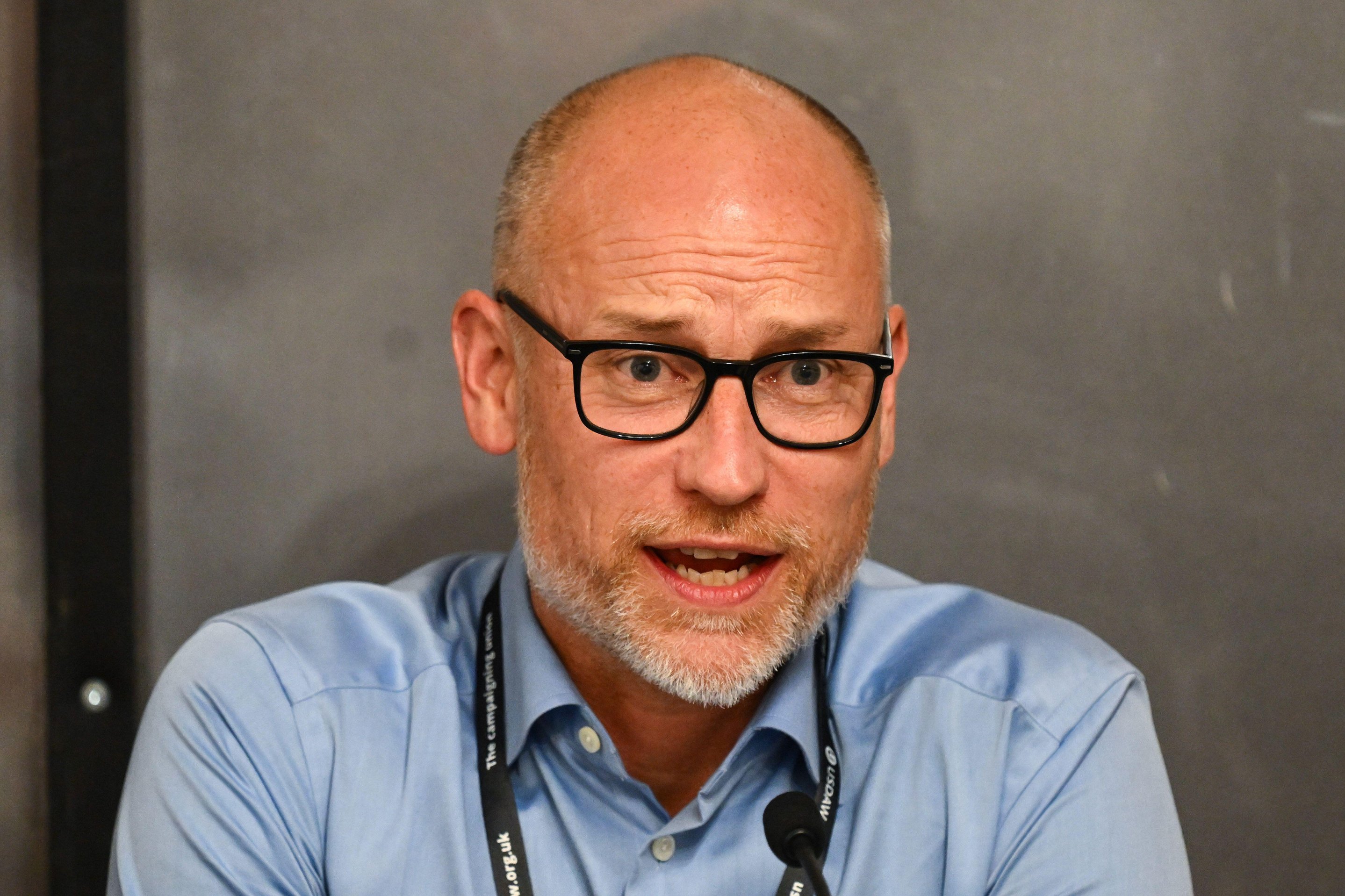The NHS will begin vaccinating all babies against chickenpox next year, in the biggest expansion of the childhood immunisation programme for a decade.
From January, the chickenpox — or varicella — vaccine will be combined with the measles, mumps and rubella vaccine into a new MMRV jab, replacing the MMR jab.
This will be offered to more than half a million children each year in two doses, at 12 months and 18 months of age, acting as a “lifesaver” against several deadly diseases.
The chickenpox vaccine is 98 per cent effective and ministers said it would save millions of sick days from school and nursery, sparing parents from “scrambling for childcare or having to miss work”.
However, the NHS faces a battle to increase uptake of childhood jabs, with data published on Thursday revealing that the number of children getting their MMR vaccine has collapsed to the lowest level for 15 years.
Nearly one in five children starting primary school next week are “at risk of serious diseases” as they are not fully up to date with their vaccinations.
• Childhood vaccinations have fallen off a cliff. How did we get here?
Just 83.7 per cent of five-year-olds have received both doses of MMR and this falls to 58 per cent in Hackney, London, which has the worst rate in the country.
None of the key childhood vaccines in England reached the 95 per cent uptake target last year, according to annual figures.
The chickenpox jab is the first to be added to the routine NHS schedule since 2015.
It has been used in Australia and the US for several years. The NHS had not followed suit because of a concern that a childhood vaccination programme might mean people who had not been exposed to the virus as a child could be more likely to develop chickenpox as adults, when cases can be more severe.
But health officials changed their position in 2023, when the Joint Committee on Vaccination and Immunisation (JCVI) recommended the jab for children after the latest evidence suggested that the benefits of the vaccine outweighed the risks.

The government is fighting to overcome vaccine hesitancy in the UK
ANDREW BROOKES/GETTY IMAGES
More than 90 per cent of children get chickenpox before turning 15, and they have to take five days off school or nursery from the moment spots appear.
As well as disrupting children’s education, chickenpox is a leading cause for parents to have to take days off work to provide childcare. Research shows the illness results in an estimated £24 million in lost income and productivity every year in the UK, as well as costing the NHS £15 million for treatment.
Stephen Kinnock, a health minister, said: “We’re giving parents the power to protect their children from chickenpox and its serious complications, while keeping them in nursery or the classroom where they belong and preventing parents from scrambling for childcare or having to miss work.”

Stephen Kinnock
MATT CROSSICK/EMPICS/ALAMY
Dr Gayatri Amirthalingam, deputy director of immunisation at the UK Health Security Agency said: “Most parents probably consider chickenpox to be a common and mild illness, but for some babies, young children and even adults, chickenpox can be very serious, leading to hospital admission and tragically, while rare, it can be fatal.
“It is excellent news that from next January we will be introducing a vaccine to protect against chickenpox into the NHS routine childhood vaccination programme — helping prevent what is for most a nasty illness and for those who develop severe symptoms, it could be a life saver.
“We now have extensive experience from a number of countries showing that the vaccine has a good safety record and is highly effective. The programme will have a really positive impact on the health of young children and also lead to fewer missed nursery and school days.”
While most chickenpox cases are mild, it can cause complications, including swelling of the brain and stroke, which can result in hospitalisation or death.
The shift to the new MMRV vaccine comes after health officials changed the schedule for the second MMR dose. Previously, children received the second dose at three years and four months, but those born from July last year onwards will now have their second dose at 18 months old.
Ministers also announced a £30 million investment in a new mRNA vaccines and drugs centre in Darlington — a move ministers hope will give the UK a global lead as the US steps back.
Health officials are considering whether to launch a catch-up programme for millions more under-fives. It is not thought the chickenpox vaccine will be made available to older children on NHS.
• Katalin Karikó: I developed mRNA. RFK Jr is endangering US public health
Treatments based on mRNA, a type of genetic material, came of age during the Covid-19 pandemic, when vaccines from Pfizer-BioNTech and Moderna were developed and deployed in record time, saving millions of lives.
Scientists believe the same approach could battle cancers and cardiovascular disease, as well as infectious conditions such as ebola, rabies and flu.
However, earlier this month, the US Department of Health and Human Services revealed plans to cancel $500 million (£376m) of funding for mRNA vaccine projects. Robert F Kennedy Jr, the US health secretary and long-time vaccine sceptic, claimed the jabs posed “more risks than benefits” for respiratory diseases — a stance dismissed as baseless by medical experts.
UK scientists see the retreat by Washington as a chance to pull ahead. The Darlington facility, named the UK RNA Biofoundry, will act as a high-tech workshop capable of producing clinical-grade RNA for vaccines and therapies in as little as seven days.
Backed by £29.6 million of government funding and technical support from the US non-profit Wellcome Leap, it will initially focus on making doses for clinical trials for academic researchers and start-up companies. According to the Department for Science, Innovation and Technology, it could switch to large-scale vaccine production in a pandemic. During covid, the UK relied on mRNA vaccines produced overseas.
Kinnock said the project would “pull our health service into the 21st century”.
Lord Vallance, the science minister, added: “RNA therapies are a new frontier in healthcare. With their ability to reprogramme our cells and adapt to different diseases, they could be the answer to many treatments the British public are desperately in need of. This new biofoundry will accelerate the journey RNA therapies take from labs to the markets.”
